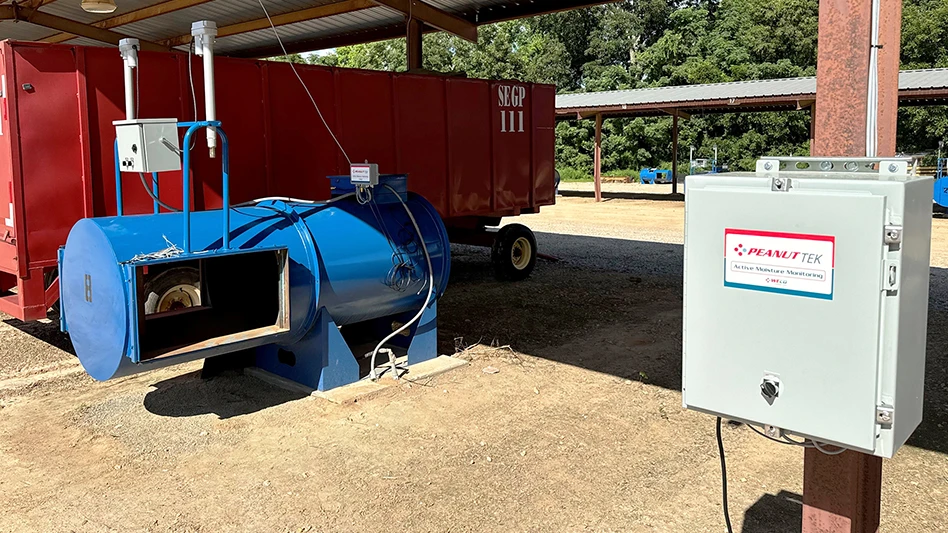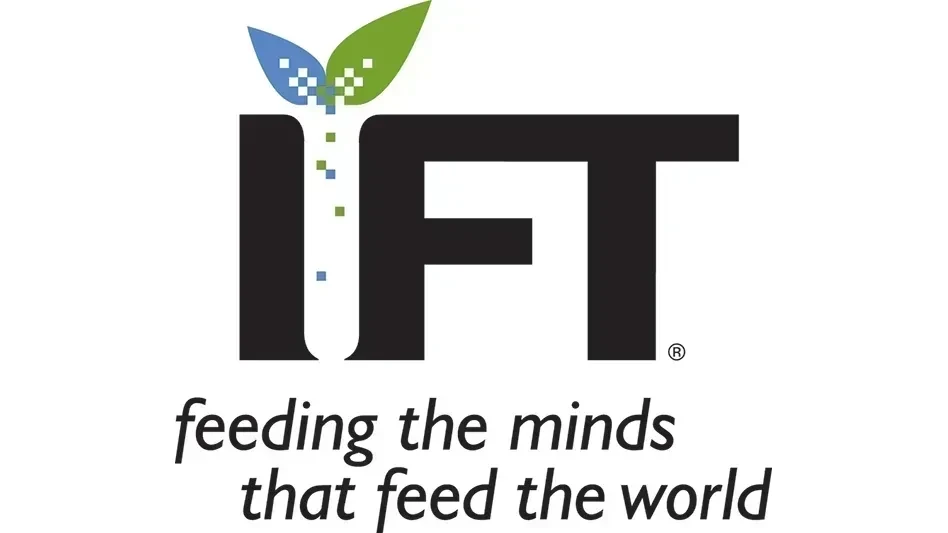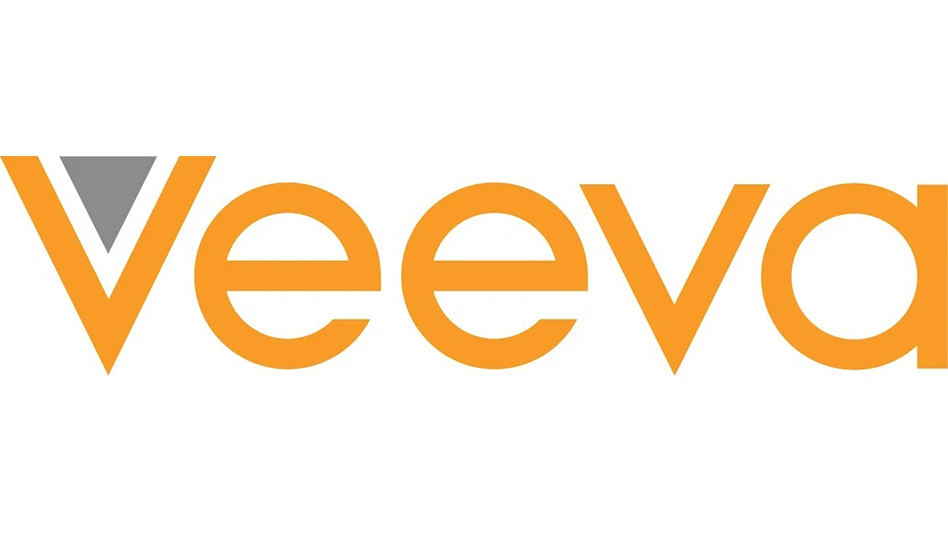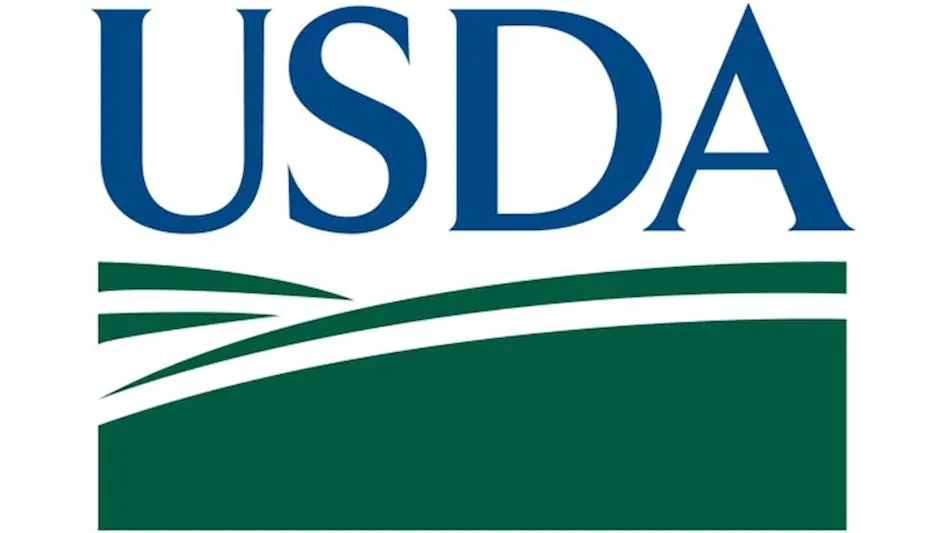
Photo courtesy WECO
WECO, a member of Duravant’s Food Sorting and Handling Solutions group, introduced its PeanutTek active moisture monitoring system. Eliminating the need for peanut buying points to take routine manual moisture samples during the drying process, PeanutTek takes real-time continuous in-shell moisture readings, displays current burner temperatures of all semis/wagons and can automatically turn off each burner once the moisture reaches a set point, according to WECO. By improving the monitoring and control of burners and enabling buying points to make more informed decisions, PeanutTek maximizes production efficiency, reduces labor requirements, improves product quality and increases profitability, said the company.
“PeanutTek transforms peanut drying operations, eliminating the need for continuous manual sampling and improving worker safety,” said Nick Lightfoot, vice president of WECO. “Our system provides instant and consistent moisture data while automatically controlling dryers. This not only redirects employees to safer roles but also prevents over-drying, saves energy and preserves product quality. Drawing on our 25 years of moisture monitoring expertise, we've created a solution tailored specifically for peanut buying points."
PeanutTek features a series of sensors that are installed in each semi/wagon to collect moisture data from a substantial sample size. By taking instant samples from a consistent location, buying points can better achieve repeatable success hitting their target moisture content, said WECO. Buying points can program PeanutTek to automatically turn off burners when the moisture of a load reaches a set point and configure a time delay for how long the fan should run afterward to help remove remaining heat within the semi/wagon. PeanutTek shows up-to-date dryer temperatures to help fine tune gas pressure and ensure that all burners are drying at their maximum efficiency and speed, said the company.
The data from sensors is sent to a centralized computer at the facility, where the active drying process for all semis/wagons can be remotely monitored with WECO’s AgTrack information management system. AgTrack enables buying points to collect, access and store data about each load’s entire drying cycle, as well as load numbers, semi/wagon numbers, growing variety, blocks and more. It provides users with in-depth graphs of moisture and temperature curves. Data can be exported to spreadsheets for record keeping. Users can also access AgTrack remotely via a smart device or home computer.
By harnessing data about the drying process, AgTrack can reveal patterns and trends that buying points can use to improve production efficiency. For example, buying points can use AgTrack’s data to determine if certain varieties of peanuts need more time to dry than others. Buying points can also use data from AgTrack to identify whether certain times of the day are inefficient for drying and it’s more effective to wait to turn burners on. Additionally, AgTrack data might reveal that on hot days buying points can simply use fans without burners to get the amount of heat needed for drying, further reducing energy consumption.
"By collaborating closely with the peanut industry, we've adapted our proven technology to solve an 80-year-old problem," said Lightfoot. "PeanutTek has halved both labor needs and over-drying incidents. This success is driving us to develop more solutions tailored to the peanut industry's specific needs."
Latest from Quality Assurance & Food Safety
- Multistate E. coli Outbreak Linked to Iceberg and Romaine Lettuce Blend
- FDA, USDA Seek Information About Food Date Labeling
- William Marler, Food Safety Advocate and Lawyer, Condemns Lack of Safety of U.S. Food Supply
- AFDO Infographics Illustrate State-Level Impact of FDA’s Proposed Budget Cuts
- Multistate Outbreak of Salmonella Typhimurium Linked to Cucumbers
- USDA Begins National Milk Testing Strategy to Address H5N1 in Dairy Herds
- USDA Announces Grain Inspection Advisory Committee Appointments
- Eagle Product Inspection Highlights FA3/M Fat Analysis Machine for Meat Inspection





